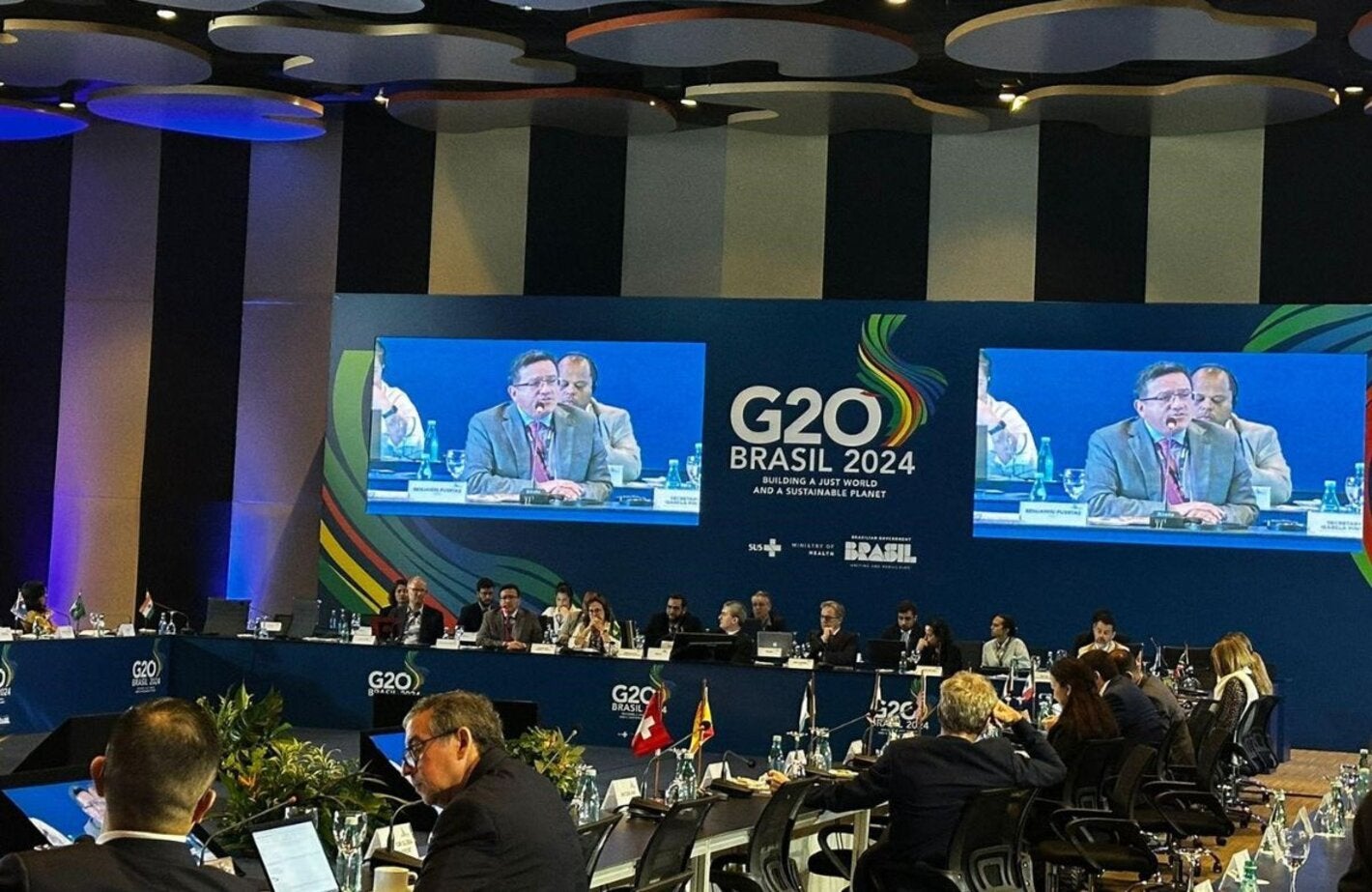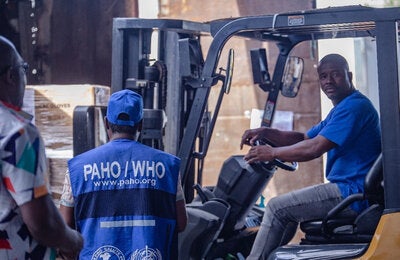
Washington D.C., 19 April 2024 (PAHO)—The Pan American Health Organization (PAHO) presented the current challenges with the migration and mobility of the health workforce in the Region and the urgent need for the international community to prioritize the investment in the formation and strengthening of the health professionals, during the G20 Side Event in Brazil on “health workforce in an era of global crisis.”
Benjamín Puertas, Unit Chief of Human Resources for Health at PAHO, presented “Strengthening Human Resources for Health to Achieve Resilient Health Systems in the Region of the Americas,” highlighting the shortages and the inequality in distribution of the health professionals in the Region of the Americas. He also provided data on the migration and mobility trends of nurses and physicians between main destination and origin countries to highlight the urgent need in developing strategies and policies to encourage retention measures in the Region and promote the ethical recruitment of health professionals in the Americas. Additionally, Puertas presented PAHO’s Health Workforce Policy 2030: strengthening human resources for health to achieve resilient health systems (CD60/6) as an example of policy actions taking place in the Americas to support the attraction, retention, protection and sustainability of the health workforce.
The G20 countries welcomed the notion of incorporating the health workforce item in their global development agenda and acknowledged the need to take measures in mitigating the migration of health professionals from low-income countries. The topics covered during the interventions included retention measures and mitigating the effects of migration in countries of origin, as well as the adoption of existing instruments such as the WHO Global Code of Practice on the International Recruitment of Health Personnel and bilateral agreements on health worker migration and mobility in destination countries.
The Director of Health Systems and Services at PAHO, James Fitzgerald, stated that higher and lower income countries must work together to address this issue, including through investment in career plans, interprofessional practice and digital literacy.
The Group of Twenty (G20) is an international economic cooperation forum made up of 19 countries (South Africa, Germany, Saudi Arabia, Argentina, Australia, Brazil, Canada, China, South Korea, the United States, France, India, Indonesia, Italy, Japan, Mexico, the United Kingdom, Russia, and Turkey) and two regional bodies: the African Union and the European Union. The Presidency of the G20 is currently held by the Brazilian government.



